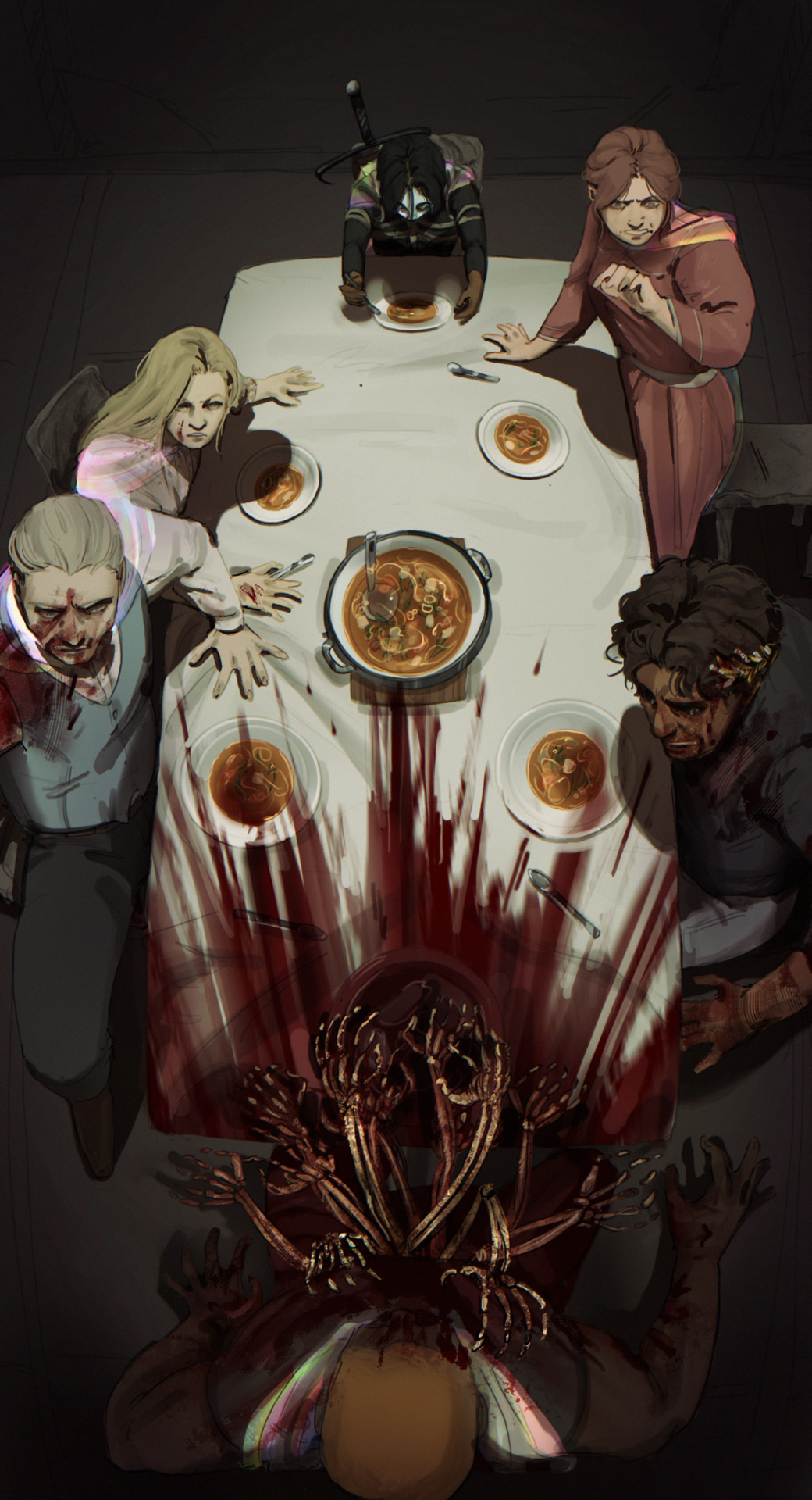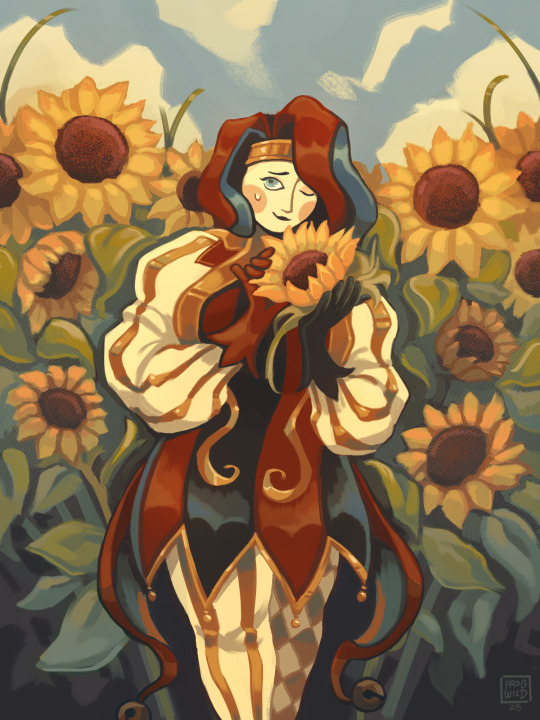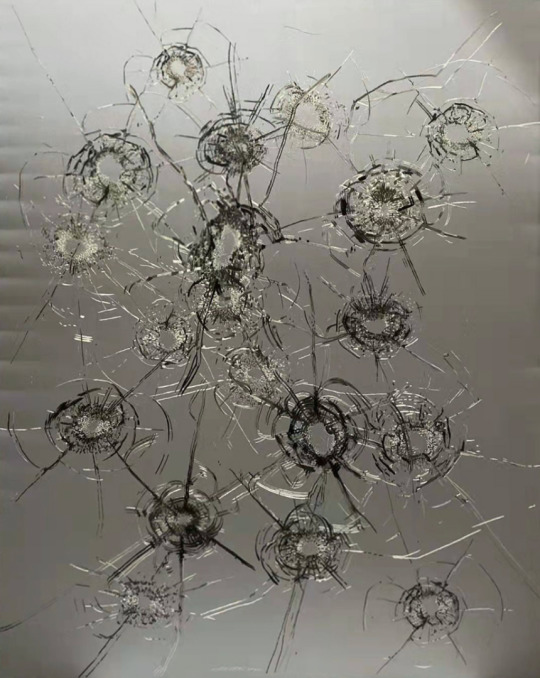mid 20s | they/them | aroace butch nb | art blog @erudipitous-art | erudipitous on ao3 | sca blog @yaninus-de-venoix | genderweird | adhd | this machine kills fascists | voidpunk | beep boop | medieval reenactor | gayer than a tree full of monkeys on nitrous oxide | culturally pagan | virtue signalling | gnu terry pratchett
Don't wanna be here? Send us removal request.
Text
figuring out razum-dars face

Half naked below the cut

112 notes
·
View notes
Text

marrow
5K notes
·
View notes
Text

Tiny nushrooms grpwing out of a douglas fir pine cone in BC, Canada.
21K notes
·
View notes
Text
i thought my laptop was on its last leg because it was running at six billion degrees and using 100% disk space at all times and then i turned off shadows and some other windows effects and it was immediately cured. i just did the same to my roommate's computer and its performance issues were also immediately cured. okay. i guess.
so i guess if you have creaky freezy windows 10/11 try searching "advanced system settings", go to performance settings, and uncheck "show shadows under windows" and anything else you don't want. hope that helps someone else.
235K notes
·
View notes
Text

Lichen growing on only the black paint of a speed limit sign.
34K notes
·
View notes
Note
explain to me how gears are machined!
wohaohowhao. gears are impossibly difficult to fabricate. way, way beyond what people might expect looking at them. “oh, it is just a shape, it is simple” - imbeciles. morons
this will be VERY LONG and i am doing most of you idiots a favor by putting this here:
i’m not going to go over what a gear is or what it does, but i will be making some assumptions:
pinions are not gears
gears are made out of metal (steel)
hobs don’t exist (they’re cheating and rob you of a nuanced understanding of what goes into a proper gear)
if you tried to machine some gears “freehand” you would never actually end up creating something that can truthfully called a gear -- the best you could do is a spoked wheel with maybe 5-7% efficiency
gears are complicated to machine for 3 primary reasons
geometrical limits -- gears are circles (squat cylinders if we’re being precise) with a finite number of equally-spaced teeth at their peripheries. in order for two gears to mate (mesh, “come together”, etc) they must have exactly the same tooth geometry (e.g. exactly the same size) and exactly the same spacing between the teeth
it’s not apparent at first, but this is a pretty limiting set of requirements. remember, two identical meshed gears are not very useful; a 1:1 gear ratio just sort of transfers power from over here to over there. you usually want a big gear driving a small gear, or vice versa. since your gear tooth size and spacing is fixed, you have a greatly reduced set of gear diameters you can work with, since in order to fit one extra tooth on a gear, you have to jump up a corresponding diameter increment, and can’t use any diameters in-between. you are also restricted by a tooth/diameter minimum, i.e., you can’t have a 1 or 2 tooth gear, which is something that a computer scientists might not realize at first glance
so, this isn’t too bad altogether, you just have to do your homework before cutting some gears. don’t worry, it gets worse
tooth geometry - you might think that there are all sorts of different tooth shapes you can employ to get all sorts of results, but you’d be wrong (idiot), there is only one tooth shape:

the involute of a circle, two pictured above. don’t worry about what that means. yes i know what this shape resembles.
if you don’t cut your teeth to exactly this shape (which, btw, changes according to the diameter of the gear they’re cut into) you will not evenly transmit power between gears, which is to say your gears won’t spin at a steady RPM. this is because your fucked up wrongteeth will be slamming into each other & knocking each other into free space that should be filled by goodteeth. look:


the blue dot and red dot (respectively) in the above images represent the point of contact (thus the point of power transmission) between the two gears at any given point in time. remember, gears are metal, metal is hard, the total area of surface contact between two pieces of metal is usually hilarious small (because metal does not “give” or “soften” to normalize a traveling path of contact, and due to all of this, the point of contact between two meshed gear teeth has to travel evenly and without interruption -- just as the blue and red dots above. why? i need to digress for a second.
gear teeth can’t just whack into each other. this isn’t carpentry. gears are used to transmit power up to the order thousands of tons per revolution. they’re made out of extremely hard martensitic steel that doesn’t handle large impluse shocks very well. if you slam martensite around hard enough, it will shatter (not “bend”, or more precisely deform elastically/plastically) and if slammed around under load, it will fucking explode. again, consider the colossal amount of power being transmitted, divided by the minimal area of surface contact between two gear teeth, and you get pressures sometimes several times what exists in the core of the earth. when the tooth that is holding this pressure suddenly shatters, all that energy is released into bits of broken gear tooth that’ll cut through you like a knife through butter, that will cut through a cast iron chassis like a knife through butter, not even noticing it
but not only that -- even with indestructible handwavium gears your teeth can’t slam into each other because that scenario requires there to be uneven empty space between gear teeth, allowing unmitigated travel in, possibly, the wrong fricken direction. this kills your efficiency incredibly quickly: sudden changes in a gear’s rotational speed oppose that gear’s nominal momentum, i.e., gears that don’t spin at a constant RPM require energy to slow down/speed up as they deviate. that energy comes from your input power, which should be transferred to the driven gear, but instead is powering zero-sum deviations in spin rate. additionally, incidences of tooth contact following a period of no contact between two gears (e.g. tooth contact beginning at any point in time other than the last moment the previous two gear teeth were in contact) (e.g. two teeth slamming into each other) see a massive reduction in power transfer as most of that energy goes into friction between the teeth instead of transmitting power mechanically -- instead of the two teeth coming together steadily, you have the driving gear tooth speed up during the period of no contact only to slam into the driven gear tooth, spalling off metal from the tooth surface and heating it from the friction (sparks). these two things will drop your efficiency to less than 10%, usually on the lower side of that, but that doesn’t matter, because if your gear teeth are slamming together they’re about to explode anyway
but ok, first we solved the issue of “how do i even design working gears considering the geometrical limits”, and now we’ve solved the issue of “what extremely weird and specific shape do i make the gear teeth so my gear train does anything other than explode spectacularly/immediately” and now we can move on to
rotational compounding error, machining precision, offset -- this is the real killer, what makes machining gears truly difficult.
let’s digress again
gears are made out of metal, and people who make things out of metal are machinists, and do so using machines. when you’re machining metal, and you’re in america, you operate using two units: the mil (1/1000th of an inch which is about the smallest discrete movement a professional [piano player, diemaker, anything that requires precise small hand movements] can make with their hands consciously. the tip of a needle is around 100 mils) and the tenth (one tenth of one mil, or 1/10,000th of an inch). these are inconceivably & imperceptibly small units.
the first step to machining a gear involves cutting a perfect circle. you start with barstock, that is, a rod of metal whose diameter is a bit above what the final gear diameter should be. stock that comes out of the steel mill may look round, but it’s not, remember, we’re working in thousands of an inch here, just appearing round won’t cut it.
we stick the stock in the lathe and turn it concentric (into a perfect circle) and cut off a “slice” with a thickness as close to the design as possible without going under. we now have a squat cylinder whose edges are perfectly circular but whose faces aren’t flat enough nor square enough with the round edges. easy -- we stick it face down onto the surface grinder, grind a side flat, flip it over, grind the other side flat and then until its the right thickness. now, we have a perfectly circular, perfectly square cylinder of the right dimensions. now to cut the teeth!
here is where things get tricky and you need special hardware. you cut involute teeth using a special mill tool which you move the workpiece through axially at it’s periphery as to machine the void between two teeth -- on your second pass, you will have machined two voids leaving a perfect tooth between them. but, once you’ve made your first pass, you have to rotate the workpiece, and holy shit. you cannot be off by even 1/100th of a degree. these are perhaps the most sensitive and crucial cuts you’ll be doing, because your error adds up and if it’s too high, you’ll go to cut that last tooth and realize you still have extra surface space, or go to cut the last tooth and realize you don’t have enough space. either of these will result in a totally useless gear that won’t complete a single rotation before exploding. the solution is to mount the gear in a dividing head which allows for extremely precise, but more importantly, extremely repeatable rotations in the workpiece
machining gears requires precision on the level of mils & tenths described above, and this is due to how error compounds in a unidirectionally rotating system -- gears. normal gears rotate in one direction, clockwise or counterclockwise, continuously, without reversing. during one rotation, any error, any deviation from the design model incurred during machining translates to some positive or negative “extra” rotation. that is to say, as the first rotation of the gear occurs there is some “extra” force that causes the gear to “want” to rotate a little more or a little less than one full rotation. but here’s the kicker:
upon the beginning of the second rotation, that erroneous “extra” force remains. upon the completion of the second rotation, that “extra” force has now doubled. the error forces accrue, constructively because the gear is always spinning in the same direction, never reversing, and the error (geometric deviations from design model) is unchanging. gear trains that explode after maybe a dozen or so rotations aren’t very useful,
so what do we do ? hell, why does it even matter that we fabricate the gears to such tight tolerances if any deviation/error whatsoever leads to a functionally useless, doomed gear ?
the answer is simply to machine perfectly with no error wait no that is impossible. we need some slip space to allow accrued error force vectors to dissipate, but this is extremely precarious, as slip space both causes gear teeth to slam into each other as the point of contact between teeth doesn’t move evenly and also reduces the total tooth-contact travel distance meaning that all the force that is transferred now occurs over a shorter distance, multiplying the pressure between the teeth accordingly
“but wait ian you said that the teeth can’t slam into each other ever” -- yes, you’re right. how do we provide empty slip space between teeth without disrupting a continuous & even power transmission surface? the answer is fricken extremely calculated error analysis & gear offset
imagine you have two compatible gears and you mesh them together as hard as possible such that the teeth engage with each other as deeply as possible -- no empty space whatsoever -- this is zero gear offset. now lets say you pull them apart, to some arbitrarily large degree, but not so much that the teeth no longer engage with each other -- this is too much gear offset -- the teeth slam together and explode. but what if we very arduously and scientifically analyze and test our machining equipment as to accurately quantify the error they will impart to gears they machine and use that figure to calculate a gear offset that perfectly opposes erroneous forces ?
something beautiful happens
your slip space is perfectly large enough to dissipate all the error-borne forces, not a hair too big and not a hair too small. the gear teeth stay in contact evenly, they don’t slam into each other, and no error forces compound and cause the gears to explode. finally, a working gear: a monumental achievement that can only be properly appreciated when looked at through an engineer’s lens. proper gear trains can achieve up to like 99% efficiency (!!!) which is unheard of -- wings on a 747 commercial passenger jet are like 10% efficient, your car’s internal combustion engine is about 37% efficient.
8K notes
·
View notes
Text

3 - Folly B. Fortune 🌻 for @bogkeep :D
77 notes
·
View notes
Text







Always a good time to burn down yet another village!
Patreon
58K notes
·
View notes
Photo

Zhao Zhao (Chinese, b. 1982)
Constellations, 2021-2022
Embroidery on silk
63K notes
·
View notes
Text
Saw a post about good old Abnur Tharn (voiced by our beloved Alfred Molina) from The Elder Scrolls Online and how many children he has. The tags on the post? Fucking hysterical. (I blacked out urls for privacy.)





81 notes
·
View notes
Text

I cant believe Varen gets to have not one but two evil counselors
573 notes
·
View notes
Text

little study for myself when I forgor how to hands
2K notes
·
View notes
Text
Suddenly remembering that Nirn is geocentric not heliocentric. What the fuck
118 notes
·
View notes
Text

op turned off reblogs due to getting harassed over this post but i agree with this too hard .m y post now
76K notes
·
View notes


